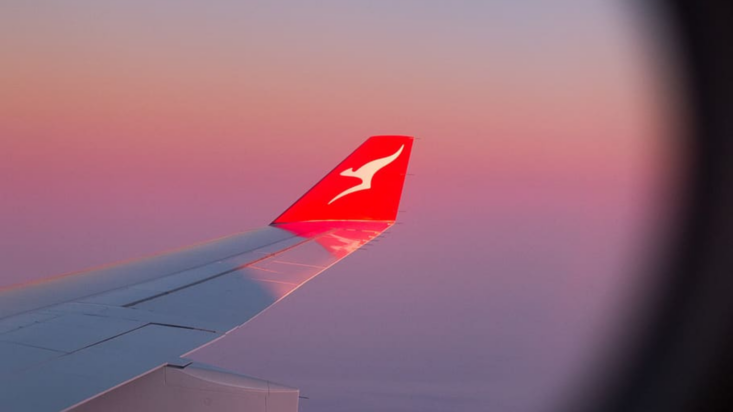Qantas’ fall from grace tests limits of customer loyalty
There would be few Australians who don’t have a memorable Qantas moment. The excitement of their first flight, help when stranded overseas, or for a starry-eyed youngster, a seat in the cockpit. In more halcyon days, it really was a trusted brand – the Spirit of Australia.
Today, with its disgraced CEO Alan Joyce having taken early leave from the Chairman’s Lounge and with the board, in the person of chairman Richard Goyder, desperately trying to reassure the flying public of its focus on restoring confidence in the company, it’s hard to fathom such a treasured national icon falling from grace so far and so quickly. To say the brand has been trashed is to put it mildly.
Some have compared Qantas to the banks in the wake of the Financial Services Royal Commission. But that’s a false analogy. Australians have never liked the banks – bank-bashing is a national pastime. But Qantas was different, an impeccable safety record adding to its aura.
So how did it come to this?
To my mind it’s not because Joyce and the board have attempted to maximise returns to shareholders – that’s to be expected. It’s the fact that while doing so, they have still expected government largesse on a scale that must have other companies (think ANZ and its frustrated takeover of Suncorp) green with envy.
The public are not mugs. They know the Morrison Government kicked the can to the tune of $2.7 billion to keep Qantas afloat during COVID while Virgin was allowed to sink without a trace. They also know that the Government didn’t take equity for that ‘loan’, that there was no mention of its being repaid, and that a sizeable portion of it has found its way back into the pockets of shareholders (including Joyce) via share buybacks.
Yet, during COVID-19, Qantas hardly covered itself in glory as the ‘national carrier’ ferrying Australians home to safety. The cacophony of complaints about Qantas service really took off during the pandemic and has not abated since, with the airline heading the Australian Competition and Consumer Commission (ACCC)’s list of companies evoking consumer complaints. Indeed, it prompted ACCC Chair Gina Cass–Gottlieb to opine that carriers should be fined for cancelling flights and made to compensate passengers, as happens in Europe.
Qantas chose to simply shrug all this off. Nothing to see here; it’s just a few disgruntled passengers. So, all customers got were platitudes about the importance of service. So, when the airline delivered an underlying profit before tax of just under $2.5 billion and a statutory profit after tax of over $1.7 billion on August 24, Joyce and the board seemed to be home free. The cream on the cake was Labor’s inexplicable decision to block Qatar Airways’ request for more international flights, helping to lock in Qantas’ market dominance.
But two events conspired to finally ground Qantas. First, Joyce’s appearance before a parliamentary committee a few days after the profit result was reminiscent of Prince Andrew’s infamous interview – an unmitigated disaster. Questioned about outstanding travel credits, he was forced to concede the company was holding a further $100 million in travel credits as the announced $370 million excluded Jetstar and overseas bookings. (Qantas has belatedly announced that travel credits won’t expire at the end of the year.)
But the biggest bombshell came the following week, when the ACCC announced it was taking Qantas to court for allegedly selling online tickets for more than 8,000 flights scheduled to leave between May and July last year, even after it had cancelled them. For good measure, the regulator also alleged that Qantas had failed to inform ticket holders about the cancellation of more than 10,000 flights during the same period.
And Qantas’s response. “These allegations have caused significant concern among our customers, our people and the general community.” As mea culpas go, it could not have been more tepid.
With Joyce gone, it’s now left to incoming CEO Vanessa Hudson (the former CFO) to restore the airline’s battered reputation. It will not be helped by her singing from Joyce’s hymn sheet when being appointed CEO last May, saying the airline had the balance right between customers, employees and shareholders. Suddenly, it’s all about customers; even tone-deaf Goyder knows that.
Yet she must resurrect Qantas’ image in a more competitive market, with an ageing fleet (capex over the next five years is estimated at $15 billion), fewer favours from a Labor Government chastened from the Qatar Airways fallout and potential fines of up $250 million if the ACCC gets its way in court. To say she’s inherited a poisoned chalice is an understatement.
Still, there are things that can be done immediately – if the board can only finally find some intestinal fortitude – to restore a modicum of public trust in the Flying Kangaroo. First, cancel Joyce’s reported sign-off bonus of $24 million and politely ask Goyder to follow the man he once described as Australia’s best CEO “by the length of a straight” out the door.
This article originally appeared in The Inside Investor.











